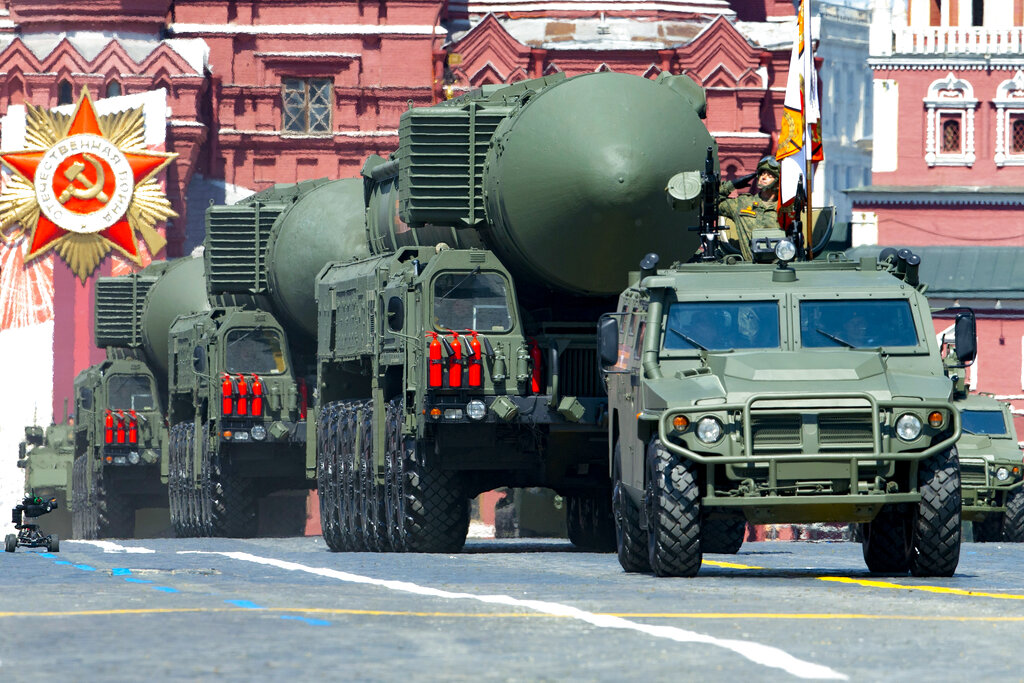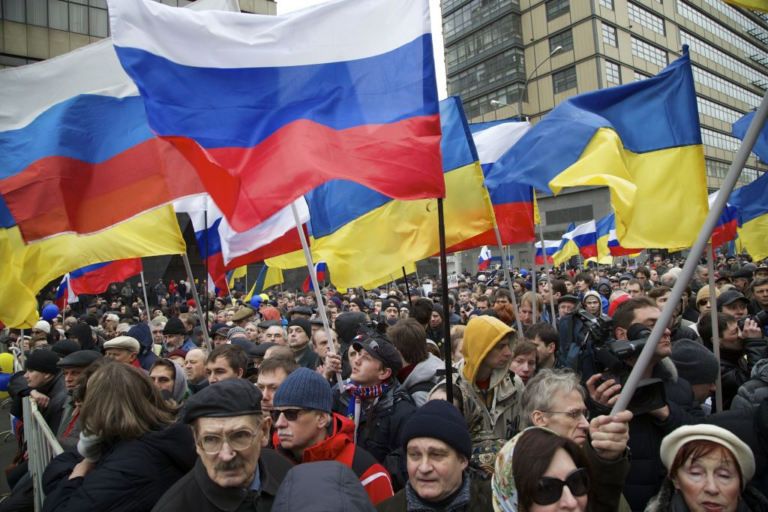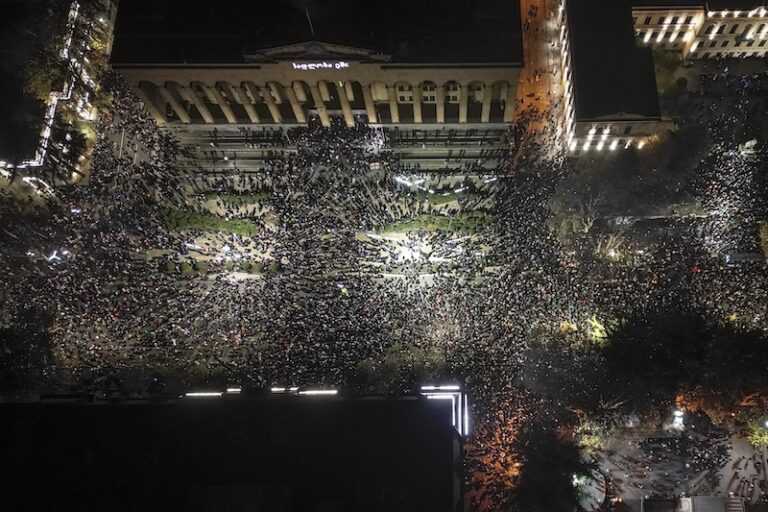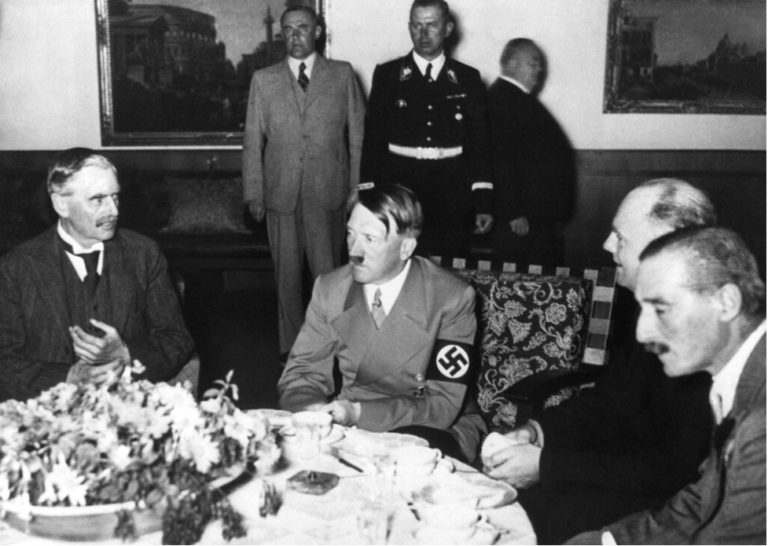
Following hints that the Kremlin sees a “basis for a nuclear war,” Russian President Vladimir Putin announced possible updates to the country’s nuclear policy on Sept. 25. When this new policy is codified, Russia will be able to use nuclear weapons in the face of a “critical threat” to the Russian state — including aggression by any non-nuclear state with the participation or support of a nuclear-weapon state.
However, very little is truly “new” about these proposed updates. The Kremlin last outlined conditions under which Russia would use nuclear weapons in 2020. It, too, explained that nuclear deterrence would be used to protect Russia’s sovereignty. In either case, there is no clear explanation of circumstances that would be considered strong enough to justify Russia’s use of nuclear weapons.
Putin had also already promised not to use nuclear weapons against non-nuclear states, except in cases where they act in alliance with nuclear powers. The difference from the 2020 policy is a matter of wording: Russia will now consider an attack by a non-nuclear ally of a nuclear state to be a joint attack, which would justify entering into (a possibly nuclear) conflict with either.
So, why bother making a show out of “updating” a policy when there aren’t any substantial changes being made? Putin’s allies claim that the president wants to send a signal to the West in the face of the ongoing debate over whether to give Ukraine permission to fire long-range missiles into Russia. In other words, Putin wants to threaten the West by reminding them of their nuclear power and therefore ward off further involvement in the Russo-Ukrainian war.
If this is the case, experts say that Russia’s threats aren’t faring too well. So far, the Western reaction has been largely to ignore the threat and continue operations as before.
Considering the ineffectiveness of the threats, perhaps the nuclear policy is directed towards Putin’s domestic audience more so than towards an international one.
Putin has been referencing World War II — to Russians, the Great Patriotic War — to justify his invasion of Ukraine for years. World War II represents an immense trauma to the former Soviet republics, from which around 20 million people are estimated to have died. According to Putin’s propaganda, the “West” continues to be fueled by 1940’s-era Nazist “Russophobia.” To Putin and his supporters, the Great Patriotic War continues to this day in the Western-occupied “Russian” territory of Ukraine.
Putin, from his position of power, turns this narrative into a self-fulfilling prophecy. State-funded “troll factories” stalk the internet, interrupting attempts at political discourse or spreading radical, confusing, and otherwise baseless conspiracies about Western “Russophobia.” For example, one of the most powerful conspiracies spread by trolls is that the United States is funding the development of biological weapons in Ukraine with the intent of using them against Russian people.
These stories aren’t present only in niche online forums; they exist in Russians’ everyday lives. Since the invasion of Ukraine in February 2022, Russian TV shows have portrayed Ukrainians as Nazis who readily submit to Western “Russophobia.” In his Presidential Addresses, Putin describes in great detail how the West is actively amassing weapons to eradicate all Russians from existence.
The goal is to trigger Russian trauma of World War II, manufacturing a strong sense of fear at the prospect of history repeating itself. In these conditions, people are more likely to support anyone they see as capable of sorting through all the chaos and protecting them — that being Vladimir Putin himself.
While the so-called “updates” to the nuclear policy may have some implications on Russia’s foreign policy, it also validates Putin’s story of an aggressive and fearsome West. From the Russian perspective, altering the country’s nuclear policy can only mean one thing: Putin is responding to a nuclear power, such as the United States, that is threatening to attack Russia.
We can take this logic one step further and say that if the United States allows Ukraine to fire long-range missiles into Russia, Putin could use his newly-worded rhetoric of a “joint attack” to claim that the United States had, in fact, directly attacked Russia.
Russians are now more fearful of the West than they were before, and, in that sense, the policy will have served its domestic purpose even before reaching its finished form. However, it is difficult, if not impossible, to tell whether this was Putin’s intention. There are two possibilities: either Putin is a puppet-master controlling every corner of Russian society and the psyche of Russian citizens, or Russian society has become corrupted to the point where it propagates conspiracies about the West on its own. In either case, Putin certainly benefits.
The Zeitgeist aims to publish ideas worth discussing. The views presented are solely those of the writer and do not necessarily reflect the views of the editorial board.



